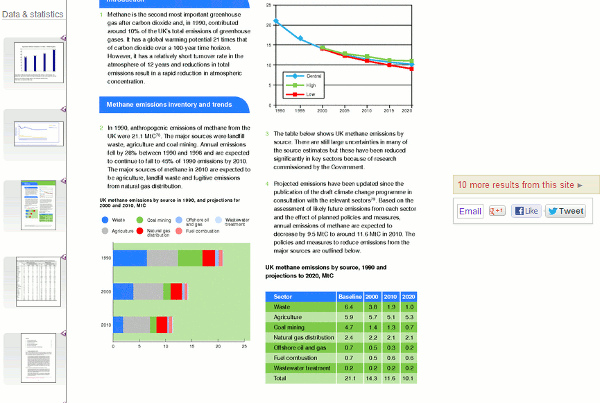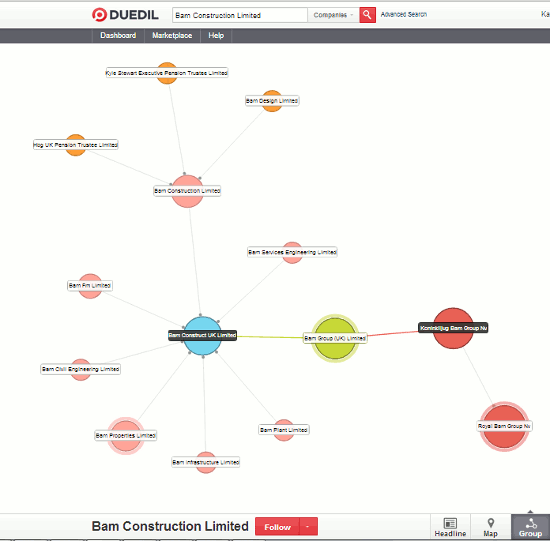Here are the Top Tips for business information compiled by the participants of my latest business information workshop held on November 15th, 2012 in London. The set of slides that was the starting point for the workshop can be found on authorSTREAM at http://www.authorstream.com/Presentation/karenblakeman-1601945-business-information-key-web-resources/
- Zanran http://zanran.com/ A search tool for identifying charts, graphs and tables of data within formatted documents such as PDFs, Excel spreadsheets and images. Enter your search terms and optionally limit your search by date and/or format type. Zanran comes up with a list of documents that match your criteria with thumbnails to the left of each entry. Hover over the thumbnail to see a preview of the page containing your data and further information on the document. Very useful if you are looking for industry statistics.

- University library subjects guides. If you are looking for some good starting points on a subject seek out some university library subject guides. These list resources that are only available to their own students and staff but may also include links to relevant publicly accessible resources that have been assessed for quality.
- Socialmention http://socialmention.com/ Several social media search tools were covered in the workshop but this one received a special mention as a good general all round social media tool. It covers images, blogs, Twitter, Facebook, audi0 and bookmarks. If you are monitoring a topic you can set up email and RSS alerts.
- Companies House http://www.companieshouse.gov.uk/ The official registry for UK companies. Other services such as Company Check (http://companycheck.co.uk/) and DUEDIL (http://www.duedil.com/), which repackage Companies House data, may provide more information free of charge but it is always worth double checking with Companies House to see if there is more up to date information and to get a full of list of the documents that are available on a company. The history and list of documents that can be ordered for a company is informative in itself. On the Companies House web site use the Find Company Information to locate the company in the register and then click on “Order information for this company”. You will then see a list of available documents. Titles such as “Struck off and dissolved” and “Application for administrative restoration” would suggest that perhaps you ought to investigate further before doing business with the company.
- LinkedIn groups A couple of the workshop participants regularly use LinkedIn groups for research questions. Look for groups set up by professional and official bodies relevant to your subject.
- Twitter If you are looking for a professional, research or trade association that may be able to help with your research you only need to find just one organisation on Twitter covering your topic. Then, to find others that might be useful, see who that organisation is following.
- Millionshort http://millionshort.com/. If you are fed up with seeing the same results from Google again and again give Million Short a try. Million Short runs your search and then removes the most popular web sites from the results. Originally, as its name suggests, it removed the top 1 million but the default has changed to the top 10,000. The principle remains the same, though. Exclude the more popular sites and you could uncover a real gem. The page that best answers your question might not be well optimised for search engines or might cover a topic that is so “niche” that it never makes it into the top results.
- Biznar http://www.biznar.com/ Biznar is a federated search engine that runs your search in real-time in about 70 resources. There is a list on the Advanced Search screen where you can deselect individual or groups of resources. The results are combined into a single list and organised on the left hand side of the screen into folders such as Topics, Authors, Publications, Publishers and Dates. These are computer generated but can help you narrow down your search. A bit erratic at times and sometimes comes up with odd results but people still thought it was worth including in the Top Tips list.
- DUEDIL http://www.duedil.com/. This service repackages Companies House data and provides some of it free of charge. The feature that won DUEDIL a place in the Top Tops is the “Group” visualisation that illustrates the connections between the company you are researching, its parent companies and subsidiaries. You have to create an account (free at the moment) to access all of the information.

- SCoRe http://www.score.ac.uk A catalogue of current and historical printed company reports held in UK libraries. The catalogue does not provide links to digitised documents but is a very quick and easy way of identifying libraries that hold hard copy reports. The participating libraries include London Business School, the British Library, Manchester Business School, City Business Library, Guildhall Library, Strathclyde University and the University of Warwick. A full list is available at http://www.score.ac.uk/collections.asp.
The SCoRe website (www.score.ac.uk) will close as of 21st March 2013. Many of the participating libraries are no longer actively collecting print reports and are in the process of digitising their collections.
The Guildhall Library will continue to cover London Stock Exchange companies listed between 1880 and 1965 supplemented by the planned digital archives at the London Business School, the University of Manchester and the University of Strathclyde. The British Library’s collection of hard copy company annual reports remains available.
Thanks for the update, Ann.